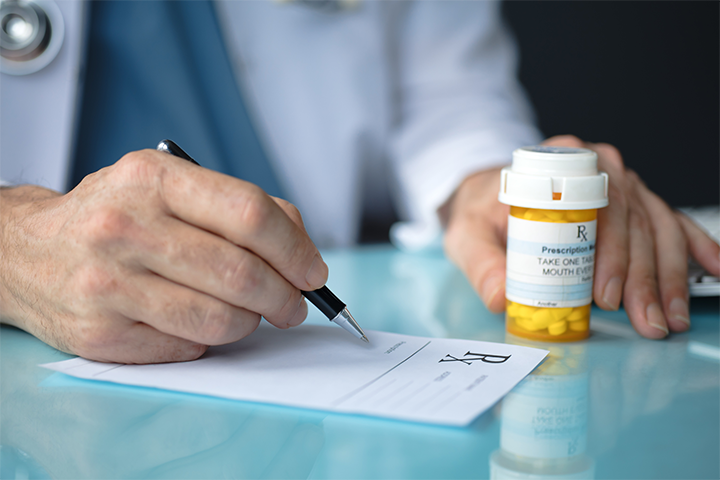How to deal with stolen or forged scripts
Sonya Black, LLB (Hons), B.Com, Legal Team Manager – Workplace Law Team, Avant Law, QLD
Sunday, 28 February 2021

Ms Green*, a pharmacist, notices some irregularities with a prescription. She calls Dr Beige at A1 Practice to verify the authenticity of the script.
Dr Beige advises Ms Green that she did not issue the script.
After a short workplace investigation, A1 Practice discovers that a casual receptionist, Ms White, had stolen Dr Beige’s script pad and created a number of prescriptions. Ms White admits that she stole the script pad but refuses to return it.
Dr Beige and A1 Practice seek advice from Avant.
Key points
Requirements in each state and territory regarding the reporting of the theft or loss of prescription pads vary slightly so you need to check the requirements in the state or territory you practice.
Under state and territory laws, pharmacists are obliged to verify suspicious prescriptions and report forgeries to the relevant state authority, or the police in some states.
Privacy laws do not prevent doctors from notifying the relevant department (or the police) but the circumstances would guide whether or not this is appropriate. It is important to remember that you should only release as much information as necessary if you do make a report.
What are the next steps?
As per the obligations on pharmacists in her state, Ms Green notifies the state health department that she has received a fraudulent script.
In addition, Ms Green notifies the police as she understands that it is an offence under state legislation to make false representations to obtain a prescription or be in possession of a prescription which is forged, altered or was based on a false representation.
Dr Beige notifies the health department regarding the theft of her script pad and the forgery, which (in the state where she practices) involves filling in an online form.
A1 Practice notifies the local police that Ms White has stolen Dr Beige’s script pad.
The state health department commences an investigation.
The health department and the police discover that the receptionist:
- stole Beige’s script pad and the script pads of other doctors at the practice.
- stole a patient contact list which included confidential patient information.
- wrote and filled over 100 scripts for S4 and S8 drugs in the names of patients.
- sold the medication for profit.
A1 Practice dismisses Ms White.
Keeping script pads safe
While most general practitioners use software to generate scripts, many still have hard-copy script pads available.
This scenario reinforces the importance for doctors and medical practices to ensure that script pads are stored securely.
Taking reasonable care to protect prescriptions from misuse or theft is still the best preventive strategy, including:
- Not leaving pads or stationery lying on desks, on car seats or other easily visible or accessible locations.
- Not leaving patients unattended in a consulting room.
- Storing pads and prescription stationery in a locked cabinet or drawer.
- Avoid over-ordering pads or prescription paper.
- Avoid leaving prescription pads at nursing homes or other locations.
- Securely destroying prescription pads or stationery if you no longer require them (if you cannot securely destroy your prescription pads you can return them to Services Australia).
- Consider what access practice staff have to patient medical information, and whether they can print medical records and patient contact information.
Other issues
In this case, Ms White printed a patient contact list and used details from the list to write scripts in the names of the patients.
As a result, the practice will need to consider whether this constitutes a notifiable data breach and they need to notify the Office of the Australian Information Commissioner (OAIC).
Further useful information:
Avant factsheet:
Disclaimers
The case discussed in this article is based on a real case. Certain information has been de-identified to preserve privacy and confidentiality.
IMPORTANT: This publication is not comprehensive and does not constitute legal or medical advice. You should seek legal or other professional advice before relying on any content, and practise proper clinical decision making with regard to the individual circumstances. Persons implementing any recommendations contained in this publication must exercise their own independent skill or judgement or seek appropriate professional advice relevant to their own particular practice. Compliance with any recommendations will not in any way guarantee discharge of the duty of care owed to patients and others coming into contact with the health professional or practice. Avant is not responsible to you or anyone else for any loss suffered in connection with the use of this information. Information is only current at the date initially published.